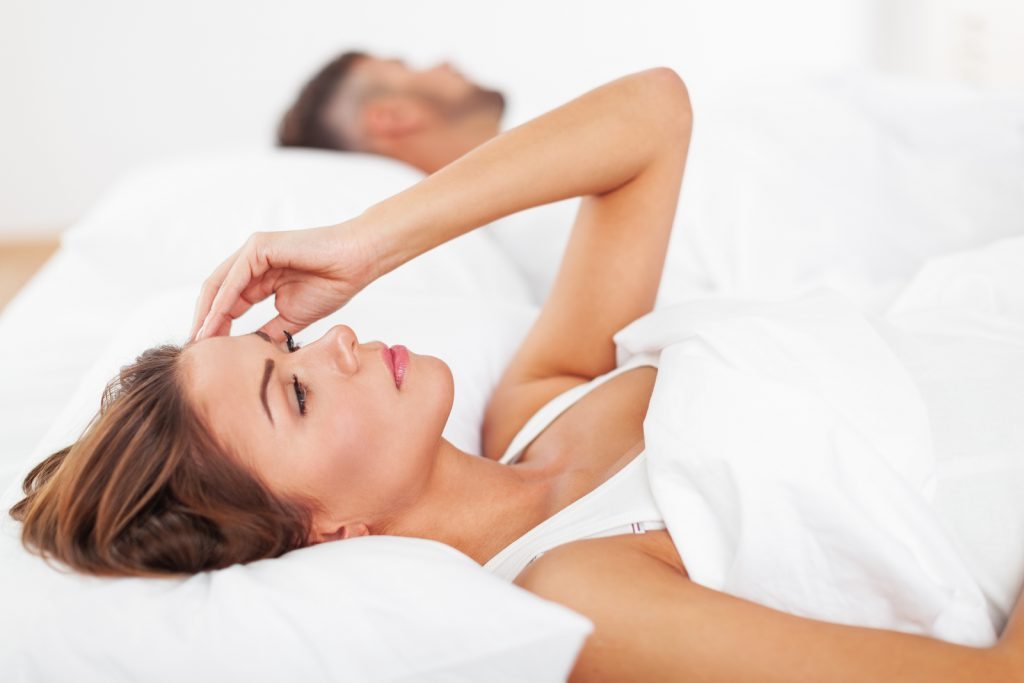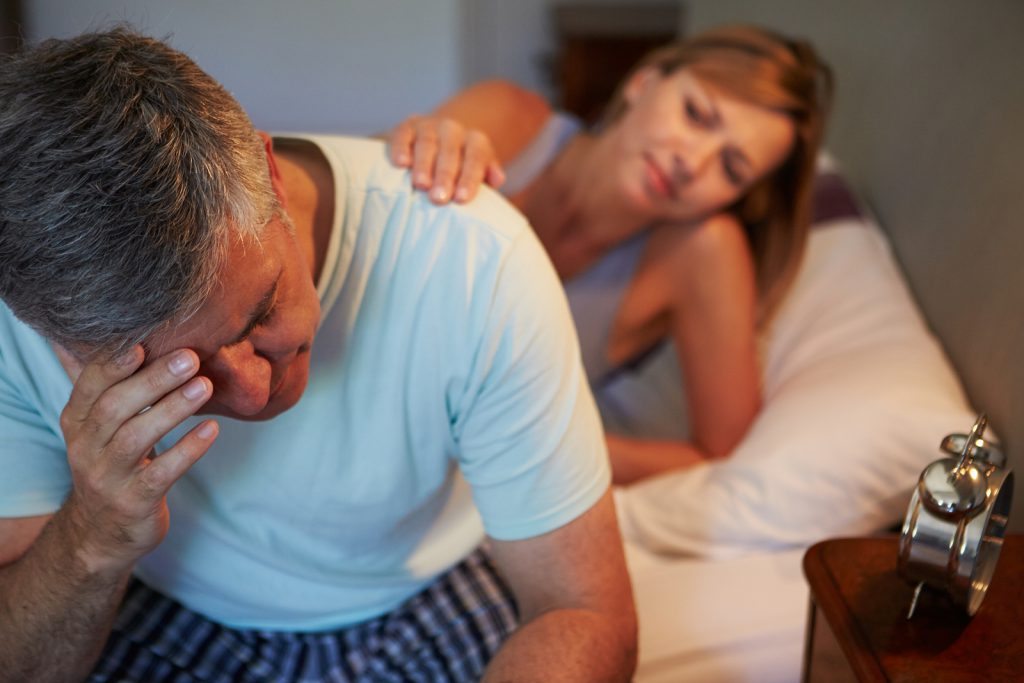Chronic insomnia and other sleep disorders are extremely common in the United States, affecting an estimated 50 to 70 million adults. While some are able to find relief in conventional medications, such as Lunesta and Ambien, pharmaceutical sleeping aids are not effective for every patient. Moreover, prescription sleep medication can have bothersome side effects, have dangerous interactions with other medications, lead to physical dependence, and even pose a risk of overdose.
If conventional medications have failed to improve the duration and quality of your sleep, you may want to consider talking to your physician about using medical marijuana, or Cannabis. In 2012, Massachusetts passed an initiative which legalized Cannabis for the treatment of chronic insomnia and other sleep disorders. There is an extensive, ever-growing body of peer-reviewed medical research – all supported by countless patient reports – which attest to the efficacy of Cannabis in aiding restful sleep for patients of all ages.
If you or one of your loved ones is struggling to find relief from persistent insomnia, call (617) 477-8886 to set up a confidential consultation with Dr. Jordan Tishler, Emergency Physician and founder of Inhale MD Health & Wellness. A graduate of Harvard Medical School with years of experience researching innovative Cannabis therapies, Dr. Tishler is committed to helping the residents of Massachusetts access safe, effective, and affordable treatment for chronic sleep disorders.

How Medical Marijuana Can Improve the Length and Quality of Your Sleep
Many people underestimate the importance of regular sleep, but the long-term consequences of chronic insomnia go far beyond just feeling tired. Over time, sleep deprivation can put you at increased risk for developing high blood pressure, cardiovascular disease, and stroke. In the short-term, insomnia can also lower your energy, make it dangerous to perform certain activities, cloud your memory, negatively affect your mood, and put a strain on your professional, personal, and romantic relationships.
Because of the long-term and immediate risks insomnia can pose, it’s important to find an effective treatment as soon as possible. Though every patient responds to treatment regimens differently, this often turns out to be a blend of both conventional medication and medical Cannabis, which has repeatedly proven effective not only in improving sleep, but also in alleviating the mental and emotional components which often lie behind insomnia, such as anxiety, depression, and stress. While prescription medications may be effective in treating the physiological causes of insomnia, they simply cannot provide wellness, the holistic benefit to both body and mind.
These benefits go far beyond extending the duration of sleep, which is merely one component of feeling well-rested. They include:
- Improved sleep hygiene. Sleep hygiene refers to your quality of sleep (and the habits which contribute toward it, such as avoiding caffeine). Many users of medical marijuana report experiencing deeper, more satisfying sleep with fewer interruptions from waking in the middle of the night.
- Decreased sleep latency. Sleep onset latency (SOL) is how long it takes for a person to fall asleep from a state of total wakefulness. Marijuana can decrease SOL so that you fall asleep in a matter of minutes rather than hours.
- Lack of “hangover” or impaired memory. Many insomnia sufferers have experimented with alcoholic “nightcaps” before bed in an effort to fall asleep faster. However, this often proves counter-productive, as drinking before bed can cause you to wake feeling groggy, disoriented, headache-y, and poorly-rested. Similarly, many who use conventional sleep aids, have found themselves subject to morning fuzzy-headedness and even loss of short-term memory. Marijuana does not produce unpleasant hangover effects, though patients are advised to stay well-hydrated.
Studies and Research on Cannabis for Insomnia Relief
At Inhale MD Health & Wellness, our philosophy is that knowledge is power. When a patient is well-informed, he or she is better able to actively participate in his or her own care plan. If you have never used Cannabis and lack familiarity with its medical applications, you may be feeling somewhat doubtful about its purported benefits as a sleep aid. It is perfectly alright to express skepticism, and in fact, I encourage my patients to ask tough questions.

In an effort to help to set your mind at ease regarding the efficacy of Cannabis in treating sleep disorders, I’ve provided a few examples of peer-reviewed medical studies on the sleep-related benefits. It is my hope that these examples of recent research will serve as a starting point for you to explore this topic in greater depth. I am always happy to answer questions, and to point my patients toward useful, unbiased medical resources. You should always feel comfortable with your care plan, which works best as an ongoing collaboration between patient and physician.
- Journal of Drug Policy Analysis – “Applicants most frequently reported using medical marijuana for pain relief (82.6%), improved sleep (70.6%), and relaxation (55.6%). The next most frequently reported benefits included relief of muscle spasms (41.3%), headache (40.8%), relief of anxiety (38.1%), improved appetite (38.0%), relief of nausea and vomiting (27.7%), and relief of depression (26.1%).”
- Clinical Gastroenterology and Hepatology – “Subjects [with Crohn’s Disease] receiving Cannabis reported improved appetite and sleep, with no significant side effects.”
- Dialogues in Clinical Neuroscience – “Many effects of marijuana may be applicable to the management of ALS. These include analgesia, muscle relaxation… and sleep induction.”
- British Journal of Pharmacology – “β-Myrcene is another common monoterpenoid in Cannabis… Myrcene is a recognized sedative [which is] employed to aid sleep in Germany.”
- U.S National Library of Medicine – “The potential benefits of medicinal Cannabis… include… pain relief, and improved sleep.”
These are just a few samples of current research probing the relationship between medical Cannabis use and sleep, its improved duration, and quality. While marijuana affects everyone differently and you may not experience the same results, if your current medication isn’t working for you, it is worth exploring Cannabis therapy as an alternative route toward getting the restorative, replenishing, rejuvenating sleep you need to feel and function your best. Many patients who formerly struggled with chronic insomnia find that medical marijuana has a noticeable positive impact on their sleep habits.
If your quality of life is being negatively impacted by a chronic sleep disorder, call Dr. Tishler at (617) 477-8886 to start discussing the health benefits of medical marijuana in a private consultation. Dr. Tishler has offices located in both Cambridge and Brookline Massachusetts.
MA specifically qualified conditions:
- Cancer
- Glaucoma
- Acquired immune deficiency syndrome (AIDS) or HIV positive status
- Hepatitis C
- Amyotrophic lateral sclerosis (ALS)
- Crohn’s disease
- Parkinson’s disease
- Multiple sclerosis
And other debilitating conditions as determined in writing by a qualifying patient’s physician, which may include:
- Chronic back pain
- Rheumatoid Arthritis
- Insomnia
- Anorexia
- Anxiety
- Depression
